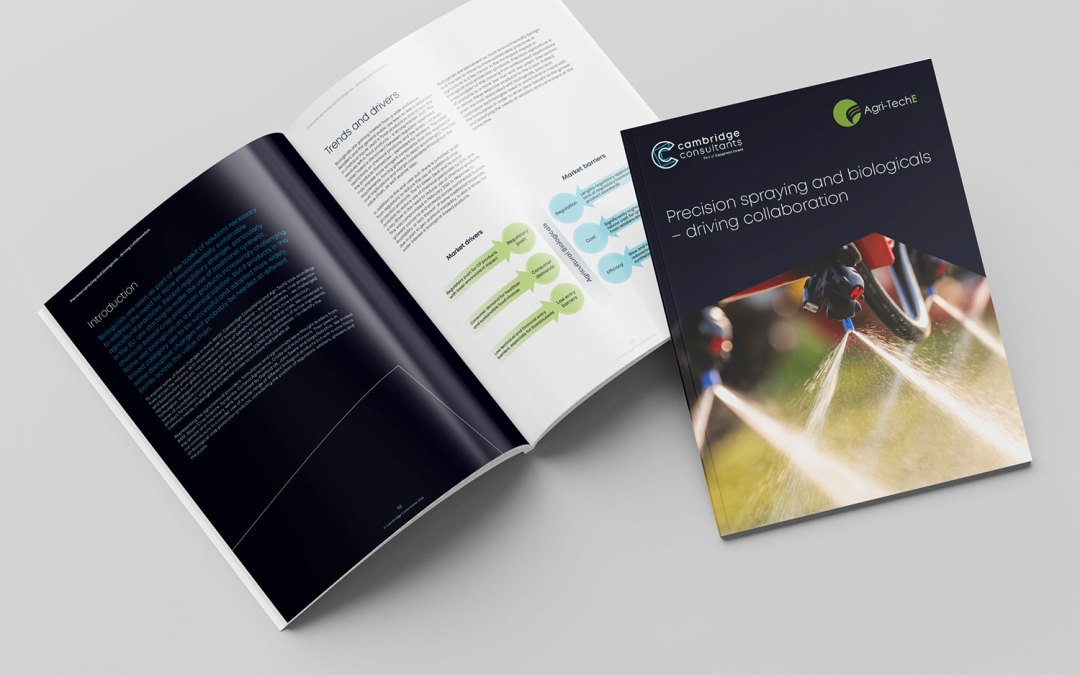Despite transformative opportunities like biologicals and biofuels sitting on the horizon, there’s still a need for greater industry collaboration to ensure meaningful change.
My theme for this article – the need to get together to do more doing and less talking – has been echoed in a recent keynote address by Chuck Magro, CEO of Corteva Agriscience. He spoke about initiatives in sustainable fuels and the need for agriculture to be central to the green energy transition.
His words alluded to the role of winter canola in a renewable fuel collaboration between Corteva, Bunge and Chevron. There was a call for better collaboration across the industry – including in key areas like data sharing. With biologics predicted to make up 25% of the total crop protection market by value within 10 to 15 years, there’s no time to waste when it comes to seizing commercial advantage and helping the environment.
At an event I attended recently, there were plenty of representatives around from the big seed and chemical companies, including Bayer and Syngenta, but comparatively few from the equipment and machinery side. This left me chewing over the potential disconnect in collaboration when much of the debate in the sessions was about scaling not only the production of biologics, but also the application method – which needs both sides working in tandem if it is to truly fly.
Biological fertilisers and pesticides
Rightly, this emerging paradigm of next generation biological fertilisers, fungicides, herbicides and pesticides is seen as the future. From a regulatory standpoint and the lay of the land set by the initiatives like the EU’s European Green Deal, traditional synthetic chemicals are gradually being consigned to history. But the challenges of bringing complex large molecule products to market at scale are complex and costly.
Indeed, many of today’s biological products are expensive and there is plenty of work to be done to optimise the bioreactor technology needed to produce them. When it comes to building a biological business for scale, bioengineering might be well understood, but bioprocessing is less so. Here at CC, we’re well aware that AI has a big role to play in both. It is used very successfully in trait selection and breeding today – insilico design – but there is less evidence of it being applied successfully in processing and production.
The industry could certainly be working together more to advance traditional bioreactor design, which is not cost competitive and does not scale in a straightforward way. The bioreactor providers need to innovate with solutions that go well beyond the fundamentals of computational fluid dynamics (CFD) and basic engineering. For me, there are plenty of discussions to be had around the interplay between the equipment, sensors and the potential of AI to really improve the state of the art.
Precision spraying for biologicals
Expanding on the theme, precision spraying is a must for biological farming products, so delivery mechanisms are key. Yet certain spray nozzles are not compatible with live microbes, not least because of the shear rate and pressures involved. Essentially, biology is a little more delicate than chemistry. The problem is that if you subject biologics to the same physical stresses that you do to chemical products, there’s a good chance they might rupture and die. Which brings me back to the collaboration point. If biologicals are the future, we must have greater cooperation between those who make the product and those who make the kit to dispense it.
Before I close, a quick word on carbon. I’ve spoken publicly during sessions that have explored opportunities to improve carbon sequestration and scale both carbon markets and smart farming practices. I’ve also written widely on this – including on key areas such as sensing and measurement – so it’s an issue close to my heart.
So, although carbon and soil health are still a hot topic, I’m a little disappointed that the overall conversation hadn’t moved on by much. This despite the injections of cash from the Inflation Reduction Act and the USDA’s Climate Smart Commodities fund. I’m confident this will change in time, but we still need greater standardisation in approach, reduction in cost and greater confidence in our measurement technologies to properly move the needle here.
This could also be down to a lack of partnerships with agricultural retail organisations and it’s a recurring theme that I see – not enough consideration of the channel to market. My big hope is that the industry can avoid getting bogged down in technology for technology’s sake. Shaping innovation with a focus on the business model and the channel to market are the real keys to progress and commercial success. Please drop me an email if you’d like to discuss that topic in more detail, it’ll be great to hear from you.





